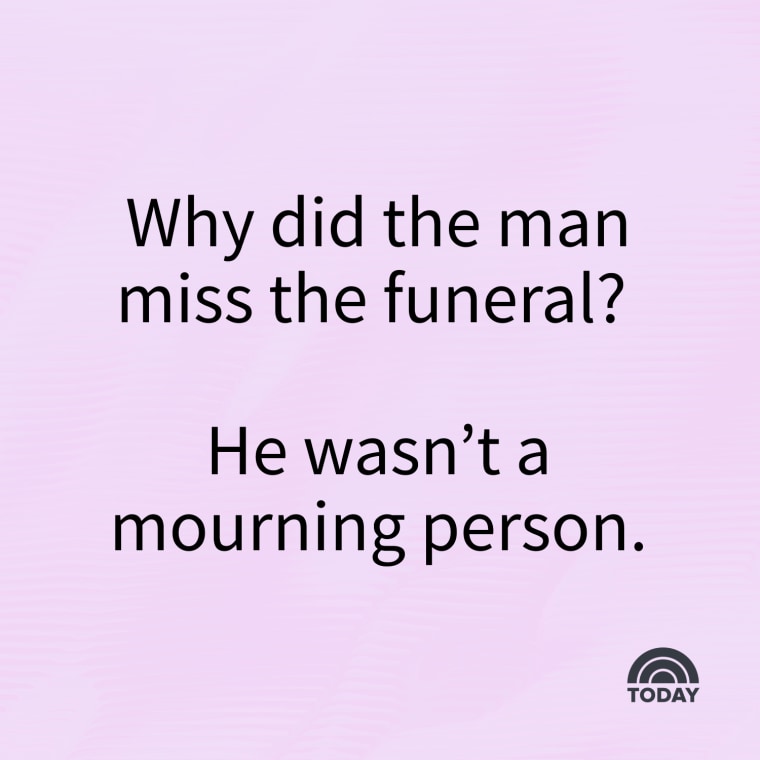Black Jokes Dark Humor: A Comprehensive Guide To Understanding And Appreciating Dark Comedy
Mar 23 2025
Dark humor or black jokes have long been a subject of fascination and controversy in the world of comedy. While some people find it hilarious, others may perceive it as offensive or inappropriate. Understanding the nuances of black jokes and dark humor is crucial for anyone who wants to explore this unique form of comedy.
Dark humor has been a part of human culture for centuries. From ancient satire to modern stand-up comedy, black jokes have always pushed boundaries, challenging societal norms and taboos. This article will delve into the world of dark humor, exploring its origins, psychological effects, and ethical considerations.
By the end of this guide, you'll have a deeper understanding of why some people find black jokes funny and how they can be used responsibly. If you're curious about dark humor, this article will provide valuable insights and help you appreciate the complexities of this controversial form of comedy.
Read also:Jacqueline Bracamontes The Iconic Star Who Shines On And Off Screen
Table of Contents:
- Biography of Dark Humor
- History of Black Jokes
- Psychology Behind Dark Humor
- Ethical Considerations of Black Jokes
- Impact on Society
- Examples of Black Jokes
- Popularity of Dark Humor
- Cultural Perspectives
- Controversy Surrounding Black Jokes
- Conclusion
Biography of Dark Humor
Dark humor, often referred to as black jokes, is a form of comedy that deals with taboo subjects such as death, illness, and tragedy. Its origins can be traced back to ancient civilizations where satire and irony were used to criticize authority figures and societal norms.
Throughout history, dark humor has evolved, adapting to the changing cultural and social landscapes. In the 20th century, it gained prominence through the works of comedians like Lenny Bruce and George Carlin, who used their platforms to challenge censorship and societal taboos.
Key Figures in Dark Humor
Several comedians and writers have played pivotal roles in shaping the landscape of dark humor. Below is a brief overview of some influential figures:
- Lenny Bruce: Known for his provocative stand-up routines, Bruce pushed the boundaries of free speech in comedy.
- George Carlin: A pioneer of dark humor, Carlin's work often tackled sensitive topics with wit and intelligence.
- Marilyn Monroe: Although not directly associated with dark humor, Monroe's life and struggles have inspired countless jokes and satirical works.
History of Black Jokes
The history of black jokes dates back to ancient times when humor was used as a tool to cope with adversity. In medieval Europe, jesters and troubadours often employed dark humor to entertain kings and commoners alike.
During the 19th and 20th centuries, the rise of print media and cinema brought dark humor to a wider audience. Films like "Dr. Strangelove" and "Catch-22" used satire to comment on the absurdity of war and politics.
Read also:Ero Me Sophie Rain A Comprehensive Exploration Into The Life And Achievements Of A Rising Star
Evolution of Black Jokes
As society evolved, so did the themes and subjects of black jokes. Modern dark humor often addresses issues like climate change, political corruption, and social inequality, reflecting the challenges faced by contemporary society.
Psychology Behind Dark Humor
Psychologists have long studied the effects of dark humor on the human psyche. Research suggests that individuals who enjoy black jokes tend to have higher levels of intelligence and emotional resilience.
According to a study published in the journal "Cognitive Processing," people who appreciate dark humor are better equipped to handle stress and adversity. This is because they can find humor even in the darkest of situations, which helps them maintain a positive outlook on life.
Benefits of Dark Humor
- Stress relief: Dark humor can serve as a coping mechanism for dealing with difficult situations.
- Emotional resilience: It helps individuals develop a stronger sense of emotional resilience.
- Cognitive flexibility: Enjoying black jokes requires a high level of cognitive flexibility and problem-solving skills.
Ethical Considerations of Black Jokes
While dark humor can be therapeutic, it also raises ethical concerns. Some people argue that black jokes trivialize serious issues and may perpetuate harmful stereotypes.
Comedians and writers must be mindful of the impact their words can have on others. It's essential to strike a balance between pushing boundaries and respecting the sensitivities of different communities.
Responsible Use of Dark Humor
To use dark humor responsibly, consider the following tips:
- Be aware of your audience: Tailor your jokes to the cultural and social context of your audience.
- Avoid targeting marginalized groups: Refrain from making jokes at the expense of vulnerable communities.
- Use humor to highlight issues: Use dark humor as a tool to draw attention to important social and political issues.
Impact on Society
Black jokes have a significant impact on society, influencing how people perceive and discuss sensitive topics. They can foster open dialogue and encourage critical thinking about issues that are often ignored or suppressed.
However, they can also divide communities and create tension between different groups. It's crucial to approach dark humor with sensitivity and awareness of its potential consequences.
Social Implications of Dark Humor
Dark humor can:
- Challenge societal norms and encourage progressive thinking.
- Create a platform for discussing taboo subjects in a lighthearted manner.
- Potentially offend or alienate certain groups if not handled carefully.
Examples of Black Jokes
To better understand dark humor, here are a few examples of black jokes:
- Why don't graveyards ever get overcrowded? Because people are dying to get in.
- I used to have a fear of hurdles, but I got over it.
- What's the difference between a dead cat on the road and a dead lawyer? There are skid marks in front of the cat.
These jokes may elicit laughter from some, while others may find them offensive. It's important to consider the context and audience when sharing black jokes.
Popularity of Dark Humor
In recent years, dark humor has gained popularity, particularly among younger generations. Social media platforms like Twitter and TikTok have provided a space for comedians to share their edgy and irreverent content with a global audience.
However, the popularity of black jokes also raises questions about the commodification of suffering. Some critics argue that dark humor has become a form of entertainment that exploits tragedy for profit.
Factors Contributing to Popularity
- Social media: Platforms like Twitter and TikTok have democratized comedy, allowing anyone to create and share content.
- Cultural shift: Modern audiences are more open to edgy and unconventional forms of humor.
- Increased awareness: Greater exposure to diverse perspectives has expanded the scope of what is considered funny.
Cultural Perspectives on Dark Humor
Cultural attitudes toward dark humor vary significantly across the globe. In some cultures, black jokes are seen as a sign of intelligence and wit, while in others, they may be viewed as disrespectful or inappropriate.
For instance, in Western societies, dark humor is often celebrated as a form of free expression. In contrast, many Eastern cultures place a greater emphasis on harmony and may frown upon humor that challenges societal norms.
Global Variations in Dark Humor
- Western cultures: Embrace edgy and irreverent humor, often pushing boundaries.
- Eastern cultures: Place a higher value on harmony and may avoid controversial topics.
- African cultures: Use humor as a tool for social commentary and critique.
Controversy Surrounding Black Jokes
Despite its popularity, dark humor remains a controversial subject. Critics argue that black jokes can perpetuate harmful stereotypes and trivialize serious issues. On the other hand, proponents claim that they offer a unique perspective on life's challenges and can foster empathy and understanding.
Ultimately, the controversy surrounding black jokes highlights the importance of context and intention in comedy. It's crucial to approach dark humor with sensitivity and awareness of its potential impact on different communities.
Addressing Controversy
To address the controversy surrounding black jokes, consider the following:
- Engage in open dialogue with diverse communities to understand their perspectives.
- Use humor as a tool for positive change rather than exploitation.
- Be mindful of the power dynamics at play when creating or sharing dark humor.
Conclusion
Dark humor, or black jokes, is a complex and multifaceted form of comedy that continues to captivate and divide audiences worldwide. While it challenges societal norms and taboos, it also raises important questions about ethics, culture, and the nature of humor itself.
If you enjoyed this article, we encourage you to share your thoughts in the comments section below. Additionally, feel free to explore other articles on our site for more insights into the world of comedy and beyond.
Remember, laughter is a universal language, and dark humor can be a powerful tool for fostering understanding and empathy. So, embrace the complexities of black jokes and discover the joy of dark humor!


